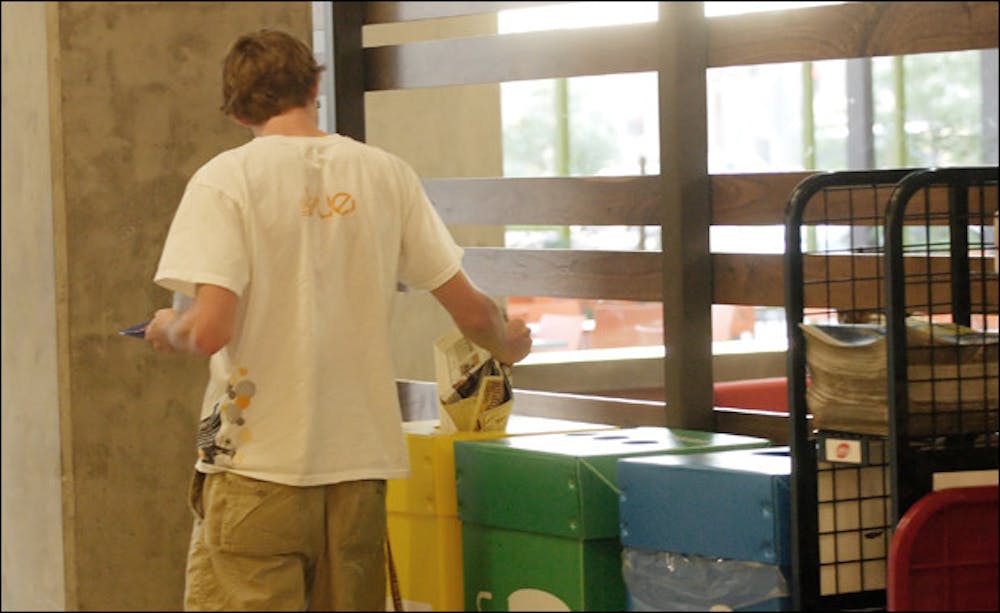The Downtown campus has taken a step to further sustainability efforts by the University, with additions to its co-mingled recycling program becoming fully operational this week.
Additions were needed because much of what was being thrown into the small universal recycling bins was actually food and other non-recyclable trash, said Cathie Fox, director for facilities management at the Downtown campus.
“When Cronkite opened we installed the universal blue recycle cans into our lobby areas and immediately they were filled with food,” Fox said. “The general community just assumes that many of those blue recyclable containers are just another waste container.”
The program will continue to use the universal bins but will try to fix the problem of recycling confusion by installing brightly colored bins that specify what exactly can be recycled, Fox said.
Despite being separated initially, the recyclables are taken by the janitorial staff and thrown together into large compactors. These compactors have been converted from trash to recycling compactors, Fox said.
“The reason why we still separate the product is that we are attempting to educate the community at large as to what is actually recyclable material,” she said.
The Downtown campus is not the first to have a co-mingled recycling program, Fox said, adding that the Tempe campus has also launched its own co-mingled system. But the challenge for the Downtown campus is the issue of space, she said.
“If you walk around the buildings you can see we’ve very limited as to where we can put a 20 to 40 yard dumpster or a compactor,” Fox said.
The cost for the program is just under $10,000. The program does not receive additional money for the recycling program. Funds come from operational money allocated to the department for the facility and management of the campus, she said.
In order to pay for the program, the department had to forgo “a number of other things,” Fox said, but could not specify exactly what the other things were.
Fox said she hopes the new additions will allow the Downtown campus to become more active in its recycling and sustainability efforts.
“We introduced a program that is not only visible, but is very basic and simple,” Fox said. “We’re making it a lot easier for everyone to participate and for the Downtown Campus to do its part.”
Bonny Bentzin, the manager of University sustainability business practices, said efficiency is the key in the co-mingled programs at both campuses.
“We need to have funding in recycling for things like containers and promotion, but we really need to be tapping into some efficiency as well in the program itself,” Bentzin said. “What we’re really focusing on is streamlining and better utilizing our staff for collection and for transportation.”
Terra Ganem, non-profit leadership and management senior and vice president of a student-recycling program, said she believed the program could be improved through more promotion like word of mouth and signs.
“Signage is critical and should be designed specially to catch students’ attention,” Ganem said.
She said it was is very interested to see how the program will progress.
“Being a student down here, I kept getting asked when they would start a recycling program,” she said. “I think it’s wonderful to see the other campuses so eager to jump on board.”
Reach the reporter at allison.gatlin@asu.edu.




